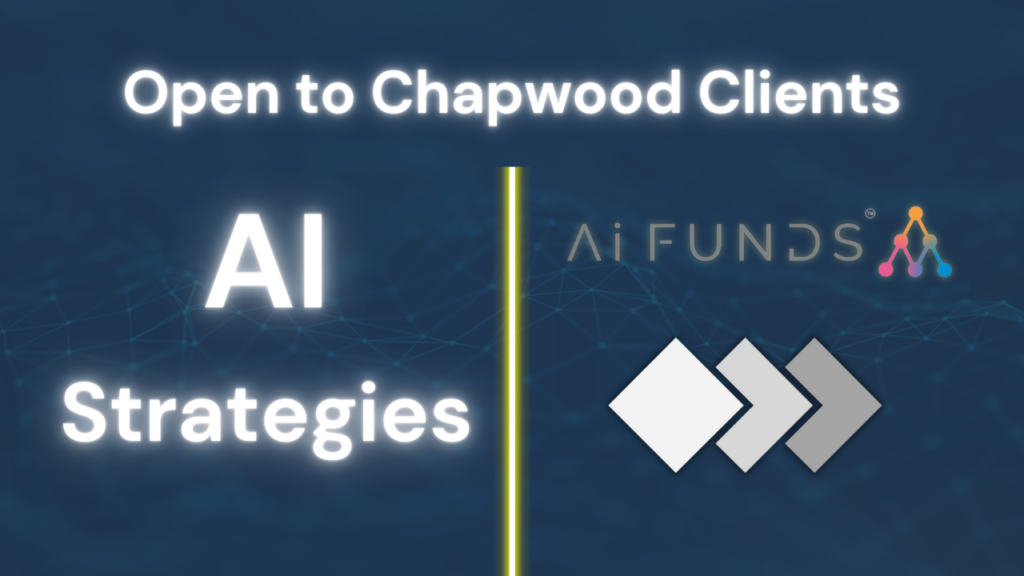Artificial Intelligence Investing Executive Summary:
- Scroll down to find our latest webinar with Dr. Tal Schwartz on the capabilities of AI investing.
- AI has long been a utilized tool in the investment world, it has now begun to have the capabilities to benefit the everyday investor.
- There are several indicators that AI may be the only tool that has the capabilties to outperform the market in 2024.
For many years, some of the best global institutions, including hedge funds and institutional traders, have harnessed the power of high-frequency trading through artificial intelligence to optimize their portfolio management.
With the surge of excitement surrounding artificial intelligence that marked 2023, a wave of newcomers also entered the realm of artificial intelligence investing, adding to the enthusiasm and innovations in this space.

Does performance matter?
Over the years, the “buy and hold” strategy has been the go-to in the financial services realm, endorsed by top thinkers in our industry like Buffett, Bogle, and so forth. While it’s undeniably set many on the path to a confident retirement and will debatably always hold a place in one’s portfolio, we firmly believe that the day we halt our approach for improved capabilities and performance is the day we lose our edge in investing.
At Chapwood Investments, we get it – our clients don’t just come to us for performance. They trust us with their money because they have specific needs that demand attention and fulfillment, and they need someone to understand the whole picture outside of performance alone. But performance is still a very crucial piece of every investment plan…
Remember Henry Ford’s iconic words: “If I would have asked people what they wanted, they would have said a faster horse.” We apply the same philosophy to artificial intelligence and investing. Building a better investment strategy involves making sound judgments and applying them logically. But it doesn’t stop there – analyzing results is crucial, and progress requires taking educated risks. That’s the essence of our approach.
The verdict may still be out when it comes to the full capabilities of AI and investing, but to deny it’s potential benefit to the average portfolio cannot be ignored on misunderstandings alone.
What can AI investing actually do?
Artificial intelligence is simply the development of computer systems that can perform tasks that typically require human intelligence. This includes learning, reasoning, problem-solving, perception, and language understanding, among other capabilities.
In terms of investing, it might be understood that artificial intelligence involves utilizing advanced algorithms and computational models to analyze vast amounts of financial data, identify patterns (something Tal discusses in the below video), and make data-driven predictions or decisions. Essentially, it’s about leveraging the power of machines to enhance investment strategies, improve decision-making processes, and potentially uncover opportunities in the market.
I strongly encourage you, the reader, to spend 40 minutes watching our latest webinar with Dr. Tal Schwartz of AI Funds. He will be able to explain the capabilities of AI much better than we can on the investments-only side.
For More:
Don’t hesitate to reach out with any comments or questions based off of this article or the above video. We’d be happy to clarify any thoughts you may have.
You can reach out to our team by emailing Jordan at jordan@chapwoodinvestments.com to get started today.
Disclosure
Chapwood Investments, LLC is a SEC Registered Investment Advisory Firm. No mention of a particular security, index, derivative or other instruments in this material constitutes an opinion on suitability of any security. The information and data in this material were obtained from sources deemed reliable. Their accuracy and completeness are not guaranteed. At any given time, principals at Chapwood Investments, LLC may or may not have a financial interest in any or all of the securities or instruments discussed in this material. The guests appearing in material do not receive compensation or provide endorsements or testimonials. Past performance is not indicative of any future results.
Exchange Traded Funds (ETF’s) are sold by prospectus. Please consider the investment objectives, risks, charges, and expenses carefully before investing. The prospectus, which contains this and other information about the investment company, can be obtained from the Fund Company or your financial professional. Be sure to read the prospectus carefully before deciding whether to invest.
Active portfolio management, including market timing, can subject longer term investors to potentially higher fees and can have a negative effect on the long-term performance due to the transaction costs of the short-term trading. In addition, there may be potential tax consequences from these strategies. Active portfolio management and market timing may be unsuitable for some investors depending on their specific investment objectives and financial position. Active portfolio management does not guarantee a profit or protect against a loss in a declining market.
Rebalancing/Reallocating can entail transaction costs and tax consequences that should be considered when determining a rebalancing/reallocation strategy. Portfolio holdings are subject to change without notice. All recommendations are based upon our experience and may or may not have been profitable in the past, now or in the future.
Diversification does not guarantee a profit or protect against a loss in a declining market. It is a method used to help manage investment risk.